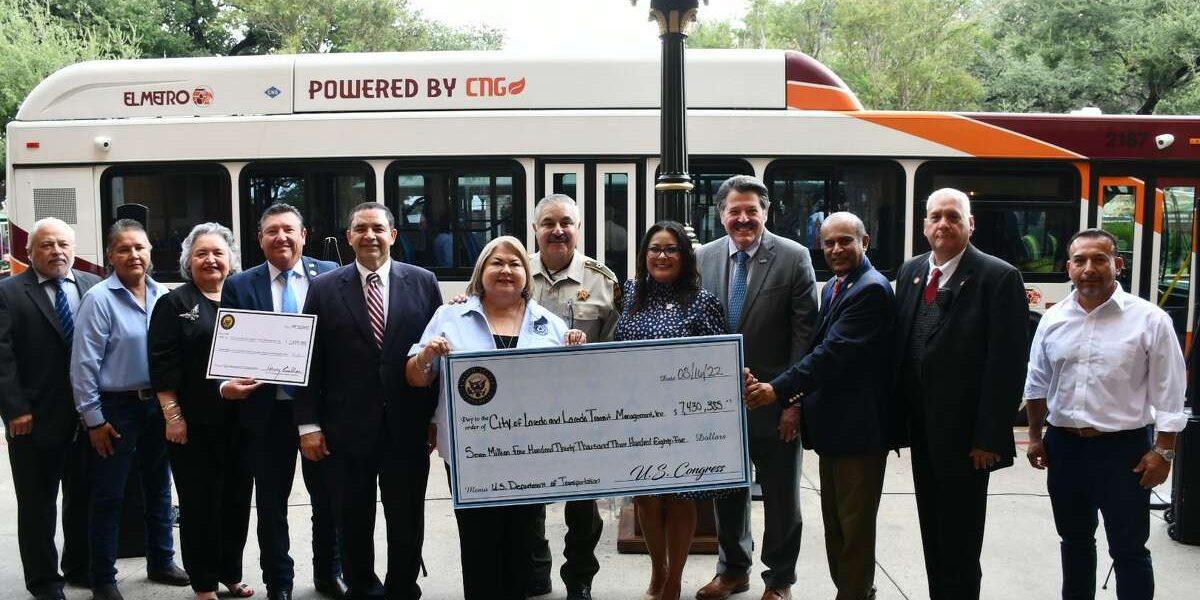The U.S. Department of Transportation’s Federal Transit Administration (FTA) announced $1.66 billion in grants to transit agencies, territories, and states across the country to invest in 150 bus fleets and facilities. Funded by the President’s Bipartisan Infrastructure Law, more than 1,100 of those vehicles will use zero-emissions technology, which reduces air pollution and helps meet the President’s goal of net-zero emissions by 2050.
“With today’s awards, we’re helping communities across America – in cities, suburbs, and rural areas alike – purchase more than 1,800 new buses, and most of them are zero-emission,” said U.S. Transportation Secretary Pete Buttigieg. “Funded through President Biden’s Bipartisan Infrastructure Law, this announcement means more good jobs for people across the country, cleaner air in our communities, and more affordable and reliable options to help people get to where they need to go.”
The bus grant awards – made under FTA’s Buses and Bus Facilities and Low- and No-Emission Vehicle programs – are FTA’s first competitive grant selections under the Bipartisan Infrastructure Law. The programs support the Biden-Harris Administration’s commitment to expand the nation’s transportation infrastructure, create and maintain good-paying jobs, and fight climate change.
FTA’s Low or No Emission (Low-No) Grant Program makes funding available to help transit agencies buy or lease U.S.-built low- or no-emission vehicles, including related equipment or facilities. The Bipartisan Infrastructure Law provides $5.5 billion over five years for the Low-No Program – more than six times greater than the previous five years of funding.
FTA’s Grants for Buses and Bus Facilities Program supports transit agencies in buying and rehabilitating buses and vans and building bus maintenance facilities. The Bipartisan Infrastructure Law provides nearly $2 billion over five years for the program.
Some of the projects selected are:
- The Fairbanks North Star Borough (central Alaska) will receive funding to buy CNG transit buses and CNG paratransit vans for the agency’s fixed-route and on-demand transit system. The new vehicles will improve the safety and reliability of transit service for residents in Fairbanks and North Pole.
- The City of Fresno (California) will receive funding to upgrade its maintenance and paratransit facilities, buy hydrogen, battery electric and CNG replacement buses, and conduct workforce development activities. This project will help improve service reliability and air quality in the Central Valley.
- Mesa County on behalf of Grand Valley Transit (Colorado) will receive funding to buy CNG buses to replace buses that have exceeded their useful life and expand its fleet, which is serving growing demand for transit in and around Grand Junction.
- The Jacksonville Transportation Authority (Florida) will receive funding to buy CNG buses and charging equipment for six battery electric buses. The buses will replace older diesel buses, helping reduce emissions and improve service reliability for riders in and around Jacksonville.
- The Florida Department of Transportation will receive funding on behalf of LYNX to buy as many as 10 CNG buses to replace diesel buses that have exceeded their useful life. The project will reduce emissions and improve service reliability for historically disadvantaged rural communities in Orance, Osceola, and Seminole counties.
- The Transit Authority of Lexington-Fayette Urban County Government (Kentucky) will receive funding to improve its CNG fueling infrastructure, make safety improvements to the Lextran maintenance facility, and buy new CNG buses to replace aging diesel vehicles. The project will help reduce emissions, improve transit worker safety and increase service reliability for riders.
- The Portage Area Regional Transportation Authority (PARTA), based in Kent (Ohio), will receive funding to replace diesel-powered vehicles that have exceeded their useful life with CNG vehicles, which will reduce PARTA’s maintenance costs, improve safety and service reliability, and lower critical emissions in Portage County.
- Stark Area Regional Transit Authority (SARTA), based in Canton (Ohio), will receive funding to buy hydrogen-powered and CNG vehicles. The grant will also go toward building an on-site fuel cell generator and solar array to support SARTA’s energy independence.
- EMBARK (Oklahoma) will receive funding to replace diesel buses that have exceeded their useful life with a combination of CNG and electric buses to improve fixed-route and paratransit services in Oklahoma City.
- The Metropolitan Tulsa Transit Authority (Oklahoma) will receive funding to buy CNG buses to replace diesel buses that have exceed their useful life and expand its fleet. The CNG-powered buses will allow the agency to increase service on its RT66 line and serve as a bridge as the agency transitions to a zero-emission future.
- The City of Norman (Oklahoma) will receive funding to buy CNG buses to replace buses that have exceeded their useful life. This will improve the reliability of transit service, helping residents access jobs, schools, and essential services.
- El Metro (Texas) will receive funding to buy CNG buses to replace diesel buses that have exceeded their useful life. The new NGVs will provide clean, reliable transportation for historically disadvantaged minority communities and complete El Metro’s goal of replacing its fleet with cleaner greener buses.
- The Greater Richmond Transit Company (Virginia) will receive funding to replace diesel-powered buses that have exceeded their useful life with lower emission CNG buses. The project will help GRTC transition to a cleaner greener fleet and help improve air quality and health outcomes in Richmond.
Photo: Rep. Henry Cuellar (Texas)
Source: FTA







